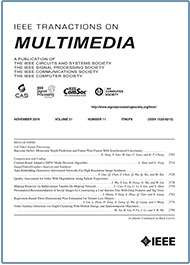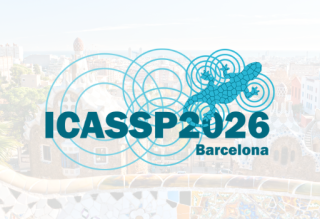- Our Story
- Publications & Resources
- Publications & Resources
- Publications
- IEEE Signal Processing Magazine
- IEEE Journal of Selected Topics in Signal Processing
- IEEE Signal Processing Letters
- IEEE Transactions on Computational Imaging
- IEEE Transactions on Image Processing
- IEEE Transactions on Information Forensics and Security
- IEEE Transactions on Multimedia
- IEEE Transactions on Signal and Information Processing over Networks
- IEEE Transactions on Signal Processing
- IEEE TCI
- IEEE TSIPN
- Data & Challenges
- Submit Manuscript
- Guidelines
- Information for Authors
- Special Issue Deadlines
- Overview Articles
- Top Accessed Articles
- SPS Newsletter
- SigPort
- SPS Resource Center
- Publications FAQ
- Blog
- News
- Dataset Papers
- Conferences & Events
- Community & Involvement
- Professional Development
- For Volunteers
- Information for Authors-OJSP
-
Home
Conferences Events IEEE Signal Processing Magazine IEEE SPL Article IEEE TIFS Article IEEE TMM Article IEEE TSP Article Jobs in Signal Processing Lectures Machine Learning Seasonal Schools Signal Processing News SPM Article SPS Distinguished Lectures SPS Newsletter Article SPS Webinar SPS Webinars SPS Webinar Series Webinar webinars
-
Our Story
What is Signal Processing?

The technology we use, and even rely on, in our everyday lives –computers, radios, video, cell phones – is enabled by signal processing. Learn More » -
Publications & Resources
-
SPS Resources
- Signal Processing Magazine The premier publication of the society.
- SPS Newsletter Monthly updates in Signal Processing
- SPS Resource Center Online library of tutorials, lectures, and presentations.
- SigPort Online repository for reports, papers, and more.
- SPS Feed The latest news, events, and more from the world of Signal Processing.
-
SPS Resources
-
Conferences & Events
-
Community & Involvement
-
Membership
- Join SPS The IEEE Signal Processing Magazine, Conference, Discounts, Awards, Collaborations, and more!
- Chapter Locator Find your local chapter and connect with fellow industry professionals, academics and students
- Women in Signal Processing Networking and engagement opportunities for women across signal processing disciplines
- Students Scholarships, conference discounts, travel grants, SP Cup, VIP Cup, 5-MICC
- Young Professionals Career development opportunities, networking
- Get Involved
-
Technical Committees
- Applied Signal Processing Systems
- Audio and Acoustic Signal Processing
- Bio Imaging and Signal Processing
- Computational Imaging
- Image Video and Multidimensional Signal Processing
- Information Forensics and Security
- Machine Learning for Signal Processing
- Multimedia Signal Processing
- Sensor Array and Multichannel
- Signal Processing for Communication and Networking
- Signal Processing Theory and Methods
- Speech and Language Processing
- Technical Working Groups
- More TC Resources
-
Membership
-
Professional Development
-
Professional Development
- Signal Processing Mentorship Academy (SigMA) Program
- Micro Mentoring Experience Program (MiME)
- Distinguished Lecturer Program
- Distinguished Lecturers
- Distinguished Lecturer Nominations
- Past Lecturers
- Distinguished Industry Speaker Program
- Distinguished Industry Speakers
- Distinguished Industry Speaker Nominations
- Industry Resources
- IEEE Training Materials
- Jobs in Signal Processing: IEEE Job Site
-
Career Resources
- SPS Education Program Educational content in signal processing and related fields.
- Distinguished Lecturer Program Chapters have access to educators and authors in the fields of Signal Processing
- Job Opportunities Signal Processing and Technical Committee specific job opportunities
- Job Submission Form Employers may submit opportunities in the area of Signal Processing.
-
Professional Development
-
For Volunteers
-
For Board & Committee Members
- Board Agenda/Minutes* Agendas, minutes and supporting documentation for Board and Committee Members
- SPS Directory* Directory of volunteers, society and division directory for Board and Committee Members.
- Membership Development Reports* Insight into the Society’s month-over-month and year-over-year growths and declines for Board and Committee Members
-
For Board & Committee Members
Popular Pages
Today's:
- Information for Authors
- SA-TWG Webinar: New Frontiers in One-Bit Signal Processing: From Sample Abundance to Efficient Intelligence at Scale
- Annual Call for Proposals
- Submit Your 2026 ICASSP Workshop Paper
- New Podcast Episode: Trustworthy Machine Learning & Artificial Intelligence
- IEEE Transactions on Information Forensics and Security
- IEEE JSTSP Special Issue on Advanced AI and Signal Processing for Low-Altitude Wireless Networks
- (ICME 2026) 2026 IEEE International Conference on Multimedia and Expo
- SPS Scholarship Program
- (ASRU 2025) 2025 IEEE Automatic Speech Recognition and Understanding Workshop
- Signal Processing 101
- IEEE Transactions on Signal Processing
- IEEE Signal Processing Letters
- Conference Call for Papers
- Information for Authors-SPL
All time:
- Information for Authors
- Submit a Manuscript
- IEEE Transactions on Image Processing
- IEEE Transactions on Information Forensics and Security
- IEEE Transactions on Multimedia
- IEEE Transactions on Audio, Speech and Language Processing
- IEEE Signal Processing Letters
- IEEE Transactions on Signal Processing
- Conferences & Events
- IEEE Journal of Selected Topics in Signal Processing
- Information for Authors-SPL
- Conference Call for Papers
- Signal Processing 101
- IEEE Signal Processing Magazine
- Guidelines
Last viewed:
- 2027 IEEE International Workshop on Machine Learning for Signal Processing (MLSP 2027)
- Call for Proposals: Machine Learning for Signal Processing (MLSP 2028)
- Industry Leaders in Signal Processing and Machine Learning: Greg Mori
- Information for Authors-JSTSP
- IEEE Signal Processing Magazine
- Call for Proposals: IEEE MLSP 2026
- MGA Operations Manual changes: Term limits for officers
- How MRIs are Changing How Society Looks at your Brain
- Submit a Manuscript
- Information for Authors
- IEEE Signal Processing Society Annual Election Opens on 17 October
- Memorable Gathering of IEEE Signal Processing Society Presidents
- Conferences & Events
- SPS Travel Grants
- Call for Papers for ICASSP 2026 Now Open!
Dense Video Captioning Using Graph-Based Sentence Summarization
You are here
Transactions on Multimedia
Publications & Resources
For Authors
Top Reasons to Join SPS Today!
1. IEEE Signal Processing Magazine
2. Signal Processing Digital Library*
3. Inside Signal Processing Newsletter
4. SPS Resource Center
5. Career advancement & recognition
6. Discounts on conferences and publications
7. Professional networking
8. Communities for students, young professionals, and women
9. Volunteer opportunities
10. Coming soon! PDH/CEU credits
Click here to learn more.
Dense Video Captioning Using Graph-Based Sentence Summarization
Recently, dense video captioning has made attractive progress in detecting and captioning all events in a long untrimmed video. Despite promising results were achieved, most existing methods do not sufficiently explore the scene evolution within an event temporal proposal for captioning, and therefore perform less satisfactorily when the scenes and objects change over a relatively long proposal. To address this problem, we propose a graph-based partition-and-summarization (GPaS) framework for dense video captioning within two stages. For the “partition” stage, a whole event proposal is split into short video segments for captioning at a finer level. For the “summarization” stage, the generated sentences carrying rich description information for each segment are summarized into one sentence to describe the whole event. We particularly focus on the “summarization” stage, and propose a framework that effectively exploits the relationship between semantic words for summarization. We achieve this goal by treating semantic words as the nodes in a graph and learning their interactions by coupling Graph Convolutional Network (GCN) and Long Short Term Memory (LSTM), with the aid of visual cues. Two schemes of GCN-LSTM Interaction (GLI) modules are proposed for seamless integration of GCN and LSTM. The effectiveness of our approach is demonstrated via an extensive comparison with the state-of-the-arts methods on the two benchmarks ActivityNet Captions dataset and YouCook II dataset.
SPS Social Media
- IEEE SPS Facebook Page https://www.facebook.com/ieeeSPS
- IEEE SPS X Page https://x.com/IEEEsps
- IEEE SPS Instagram Page https://www.instagram.com/ieeesps/?hl=en
- IEEE SPS LinkedIn Page https://www.linkedin.com/company/ieeesps/
- IEEE SPS YouTube Channel https://www.youtube.com/ieeeSPS
Home | Sitemap | Contact | Accessibility | Nondiscrimination Policy | IEEE Ethics Reporting | IEEE Privacy Policy | Terms | Feedback
© Copyright 2025 IEEE - All rights reserved. Use of this website signifies your agreement to the IEEE Terms and Conditions.
A public charity, IEEE is the world's largest technical professional organization dedicated to advancing technology for the benefit of humanity.









